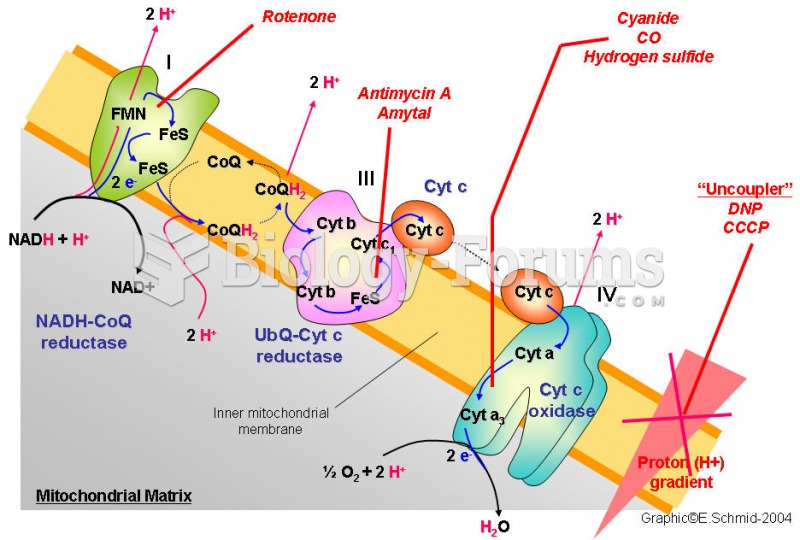This topic contains a solution. Click here to go to the answer
|
|
|
Did you know?
In inpatient settings, adverse drug events account for an estimated one in three of all hospital adverse events. They affect approximately 2 million hospital stays every year, and prolong hospital stays by between one and five days.
Did you know?
Nearly 31 million adults in America have a total cholesterol level that is more than 240 mg per dL.
Did you know?
Fungal nail infections account for up to 30% of all skin infections. They affect 5% of the general population—mostly people over the age of 70.
Did you know?
The average adult has about 21 square feet of skin.
Did you know?
In 1844, Charles Goodyear obtained the first patent for a rubber condom.
 The cranium of a young infant changes dramatically in shape with age. Initially the child has severa
The cranium of a young infant changes dramatically in shape with age. Initially the child has severa
 The opening and closing of voltage-activated sodium and potassium channels during the three phases ...
The opening and closing of voltage-activated sodium and potassium channels during the three phases ...





